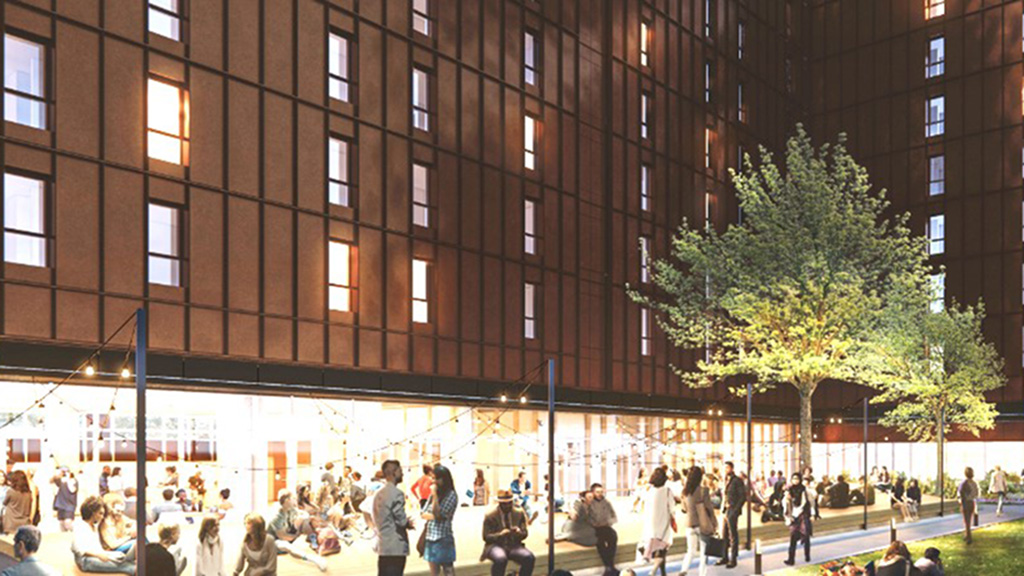has reported the cost of capital remains the top priority issue for the fourth consecutive quarter for North American commercial real estate investors, followed by concerns about insurance costs in the U.S. and construction costs in Canada.
Four Altus Group valuation experts from across the continent recently pored over those and other results from Altus’s during a webinar held July 11.
They observed the office sector remains the weakling of the industry; there’s a hunger for data centres and student housing; and retail has been the sleeper of the past year.
Most respondents describe the near-term operating environment as “somewhat challenging.”
U.S.-based senior director for valuation advisory Robert Tafaro said the North American CRE market, while generally uneven, hasn’t experienced the widespread distress felt in 2009 and 2010, and large firms that have a diversified portfolio are benefiting from that strategy.
Mixed assets a benefit
“What we have seen is, for the large core portfolios, we’ve seen reshaping of their allocations, whether that’s by sector, whether that’s by geography, we’ve seen some niche sectors increase allocations,” said Tafaro. “We’ve seen some movement on the edges, but we really haven’t seen sort of fire sale or wholesale changes.
“That, again, speaks to one of the benefit walls for having a diversified mix of assets, is that you don’t have to reshape the entire investment mix.”
The Altus analysts agreed there is concern over general market fundamentals, that many asset classes are overvalued and due for corrections, but that expected reductions in interest rates over the next year should create tailwinds for the industry.
“To summarize, it does seem that capital market assumptions have stabilized again, with the exception of traditional office,” said Tafaro. “However, there’s definitely some concern regarding fundamentals, so we’ll just have to see how that plays out in the next six to 12 months.”
Builders looking for signs the construction economy will soon kick into a higher gear led by CRE investors will find little to go on in the Q2 report.
Tafaro said there are definitely pockets of softening in certain sectors and markets as the industry deals with some short-term oversupply, and the general consensus is that “we’ll get through this in the near term, and real estate will be poised for strong…growth in the next year or so.”
Halifax-based director of valuation advisory Robert Santilli remarked CRE investors are reluctant to move on new projects and instead are engaged in cost management.
“Improving operations is the focus now for many clients…with asset management and property management really being in focus,” he said. “Cap rates have moved higher, getting the most out of your property, driving NOE (net operating expenses), lowering expenses and getting creative has become imperative.”
Focusing on operations
The Canadian markets are expecting another cut in the Bank of Canada rate by the end of the year, which is going to spur more deal activity, Santilli said.
“Many institutions have already started to move back into acquisition mode, but nonetheless, I think it’s still going to remain an environment where you’re focusing on operations.”
The Q2 survey backed that assessment up – 40 per cent of U.S. respondents and 50 per cent of Canadian respondents said their primary focus would be managing the existing exposure.
The survey reported while 49 per cent of respondents do not anticipate a near-term recession, the number who believe a recession is likely within the next six months increased by seven percentage points from the previous quarter.
For the fourth consecutive quarter, industrial and multifamily asset classes are expected to be best performers over the next 12 months, with retail also expected to be as attractive as multifamily among U.S. respondents.
Calgary’s office sector bucked the general trend, Santilli said. Nationally, based on discussions with clients and other groups, it feels like the bottom is in sight for the CRE sector.
“That being said, the majority of the groups that we speak with do believe there are some more values to move lower,” he added.
U.S.-based senior director Alexander Jaffe said retail has outperformed other core property types in the past 12 months.
“The big ‘if’ is if the consumer slows down, if they stop spending. What does that mean for retail? But we haven’t seen that yet,” he said.
Follow the author on X/Twitter @DonWall_DCN.











Recent Comments
comments for this post are closed